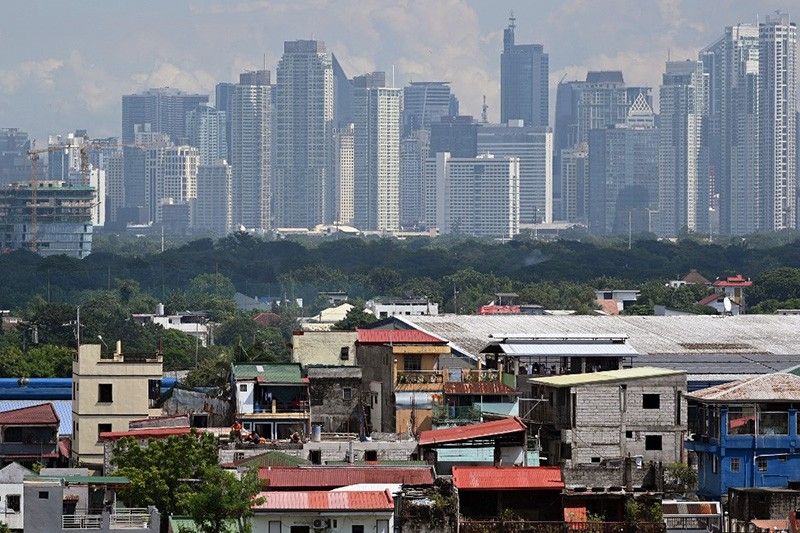Driving economic growth and development in 2024

As we look forward to 2024, the Philippines’ economic landscape stands at a crossroads, shaped by an intricate interplay of geopolitical, economic and environmental factors.
While international trade and investment have long been the foundation of global prosperity, the evolving dynamics present both opportunities and challenges amid the present realities.
Navigating this landscape requires an understanding of emerging trends and a strategic approach to capitalize on opportunities while mitigating risks. Hence, a deliberate focus on promoting resilience, sustainable practices, and investment-led growth becomes essential for building a foundation that can withstand the uncertainties on the horizon.
The interconnectedness of the world economy through the global supply chain, while advantageous, renders it susceptible to disruptions caused by economic shifts, political uncertainties, and environmental changes. Such vulnerabilities can trigger a domino effect, amplifying the impact across various sectors and regions, underscoring the potential fragility of the global supply chain.
We have seen that come to play amid the war between Russia and Ukraine, the conflict between Israel and Hamas, and the tensions in the West Philippine Sea.
Amid the dynamic landscape of global trade and investment, there is a compelling need for nations, including the Philippines, to strategically position themselves for a more resilient and investment-led growth trajectory.
In the case of the Philippines, bolstering its manufacturing industry should be an important focus since this not only helps secure a prominent position for the country in the global supply chain but also create a robust foundation for sustained growth.
Currently, the region of Southeast Asia is riding on the wave of dynamic growth and the Philippines is taking the lead. Thus, it becomes imperative for national policymakers to formulate measures that attract and facilitate foreign investments, enabling the country to capitalize on emerging opportunities and fortify its economic resilience in the face of global uncertainties.
Embracing an investment-led approach, particularly in manufacturing, is pivotal for navigating the complexities of the international economic landscape and fostering long-term sustainability.
The Philippine Statistics Authority (PSA) reported that in the third quarter of 2023, the manufacturing industry was the top recipient of foreign investment pledges, amounting to P16.43 billion. This accounted for 60.2% of the total approved foreign investments during the quarter.
The expected influx of investments into the manufacturing sector carries promising implications. If these pledges materialize, they hold the potential to generate employment opportunities for Filipinos, on top of increased productivity that can contribute to overall economic growth. This underscores the pivotal role of the manufacturing industry as a key driver of economic development in the Philippines.
According to the PSA's latest Labor Force Survey conducted in October 2023, the manufacturing sector employed some 3.6 million persons and accounts for around 7.5% of the total 47.8 million employed persons in the country. The role of manufacturing activities in job creation underscores its impact on reducing unemployment rates, alleviating poverty, and addressing socio-economic inequalities.
In a Stratbase ADR Institute paper written by Dr. Ser Percival K. Peña-Reyes and Ms. Angelica Nicolette B. Dejaresco of the Ateneo Center for Economic Research and Development, the authors noted that among the needed actions to improve the landscape for manufacturing activities to thrive is to upgrade physical infrastructure and develop human capital. Streamlining logistics and transportation services will enable seamless product flow across regions, optimizing the value chain.
The lowering of energy costs will also benefit diverse production sectors as they need uninterrupted power supply. Moreover, supporting the digital transformation of businesses can lead to higher productivity and more innovation.
The authors further indicated that despite the Philippines offering relatively lower labor costs, it is crucial for the government to recognize the importance of enhancing the skills of Filipino workers to boost competitiveness in employment. The increasing significance of roles in ICT and other related skills necessitates a national upskilling program to prepare workers for emerging market opportunities.
Indeed, the government should leverage the Philippines' current advantageous positions, including demographics, natural resources, geographical location, and proficiency in the English language. These inherent strengths position the country favorably for long-term growth and development, contingent upon a commitment to good governance and adherence to the rule of law.
The Philippines, to maintain its economic momentum in 2024, can strategically concentrate on fostering investments, specifically in the manufacturing sector. By strengthening relationships with like-minded economic partners and leveraging opportunities to strengthen its position in the global supply chain as companies rebalance their investment portfolios, the country can significantly enhance its economic prospects.
This proactive approach not only holds the potential to stimulate increased production and job creation but also aims to elevate the overall quality of life for a greater number of Filipinos.
Opportunities like the one that presents itself now do not come in handy all the time. The coming year may prove itself to be a “make-or-break” situation for the Philippine economy.
The time is ripe for a large-scale economic take-off. While the opportunities favor the Philippines, the government should grab this crucial chance by implementing national policies that ensure sustainable growth and development not only the urban centers but also in the countryside.
Venice Isabelle Rañosa is a research manager at think tank Stratbase ADR Institute.
- Latest


























